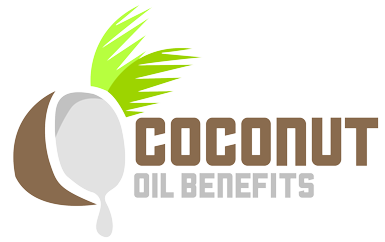Coconut oil is made from the fruit of the coconut palm (Cocos nucifera). This species is thought to have originated in Southeast Asia and Northwest South America and is estimated to be approximately 55 million years old. The oil is used as a main source of fat for millions of people in the world, especially in countries like Thailand, Indonesia and the Philippines. This incredibly healthy traditional oil comes in several forms, which may be confusing if you want to add it to your diet. In order to help you select the variety that best fits your needs and your budget, here is a guide to the different types of coconut oil.
What is Refined Coconut Oil?
The majority of coconut oils available on the market have been heavily refined. In modern production processes, most commercially-available coconut oil is made by drying the meat of the coconut, a process which is often unsanitary. In order to make it fit for consumption, it must undergo harsh and extensive processing. High temperatures are used to extract and deodorize the oil, which causes severe nutritional degradation and alteration of the structure of the fats, and is then filtered through bleaching clays to sift out any impurities.
After that, it is processed with sodium hydroxide, or lye, to stabilize it and extend its shelf life. This stabilization process is necessary because the initial heating the oil undergoes ruins its natural ability to remain shelf-stable. Many modern production processes also involve the use of chemical solvents to gain higher oil yields. The main benefits of refined coconut oil are its relatively low price and ability to be mass-produced. Furthermore, it has an exceptionally high smoke point, which makes it ideal for frying.
Sometimes, the end product may be fully or partially hydrogenated to increase its melting point and keep it solid at normal ambient temperatures. This process produces harmful trans fatty acids which are now widely known to contribute to numerous health problems. However, you will almost never find hydrogenated coconut oil for sale on its own as it is mostly used to make baked goods, candy and other processed foods. While run-of-the-mill coconut oil is still a healthy food, harsh processing methods cause it to lose some of its beneficial properties. Because of this most people who purchase coconut oil for use in their home will want to avoid refined oil.
What is Organic Coconut Oil?
Organic coconut oil is pressed from the meat of coconuts that have undergone a rigorous inspection by either a government or independent certification board and have been determined to be organic. The exact standards may vary depending on the country of origin, but the term is generally understood to mean that the coconuts were grown without the use of chemical pesticides, herbicides or fertilizers. Many people believe that this makes a safer, healthier product. While some coconut plantations do use pesticides, it has been widely speculated that the pesticides are unable to reach the fruit due to the thick, fibrous hull it is surrounded by. However, it may still be possible for the chemicals to reach the coconut fruit through the plant’s root system.
The only difference between organic and non-organic coconut oils is how the coconuts were grown.
What is Virgin Coconut Oil?
Virgin coconut oils are produced in two ways. The first method, which is used to produce most of the virgin oils available in stores, starts with fresh coconut meat that is mechanically pressed to remove the oil. The chief difference in this type of oil, besides the lack of a drying process, is that it undergoes no heating or chemical processing. Due to these superior processing methods, the end product is naturally shelf-stable and will stay fresh for up to two years. This oil is more natural and much healthier than the chemically refined oils that are more readily available. It is usually more expensive and, depending on where you live and shop, might only be found in health food or ethnic grocery stores.
The second method of producing virgin coconut oils is the traditional method that has been used for thousands of years and is considered to be the healthiest by far. It is a wet-milling process known as fermentation, but in this case, fermentation means that the coconut oil is naturally separated from the water by gravity. The process starts with coconut milk expelled from fresh coconuts that are allowed to sit for approximately 12 hours.
During this time, the water sinks to the bottom because it is the heaviest constituent of the milk. The coconut solids, also called ‘curd’, float to the top, leaving the pure, unadulterated coconut oil in the center. This oil is collected and gently heated for five to 15 minutes to get rid of any residual water content that could cause spoilage. Interestingly, this part of the process also helps to increase the product’s already high antioxidant levels. The end result is a superior-quality oil that still tastes and smells like coconuts. Oil produced using this method contains the maximum amount of nutrients and antioxidants compared to other coconut oils, but they are very expensive and can be difficult to find. However, there are numerous online stores that carry them.
What is Extra Virgin Coconut Oil?
Unlike with olive oils, there are currently no industry standards for extra virgin coconut oils. Some companies might do something special with the coconut oil that they label as extra virgin. However, since there is not industry standard, some unscrupulous companies will add the word ‘extra’ onto virgin oils to give the illusion of a superior product that commands a higher price.







